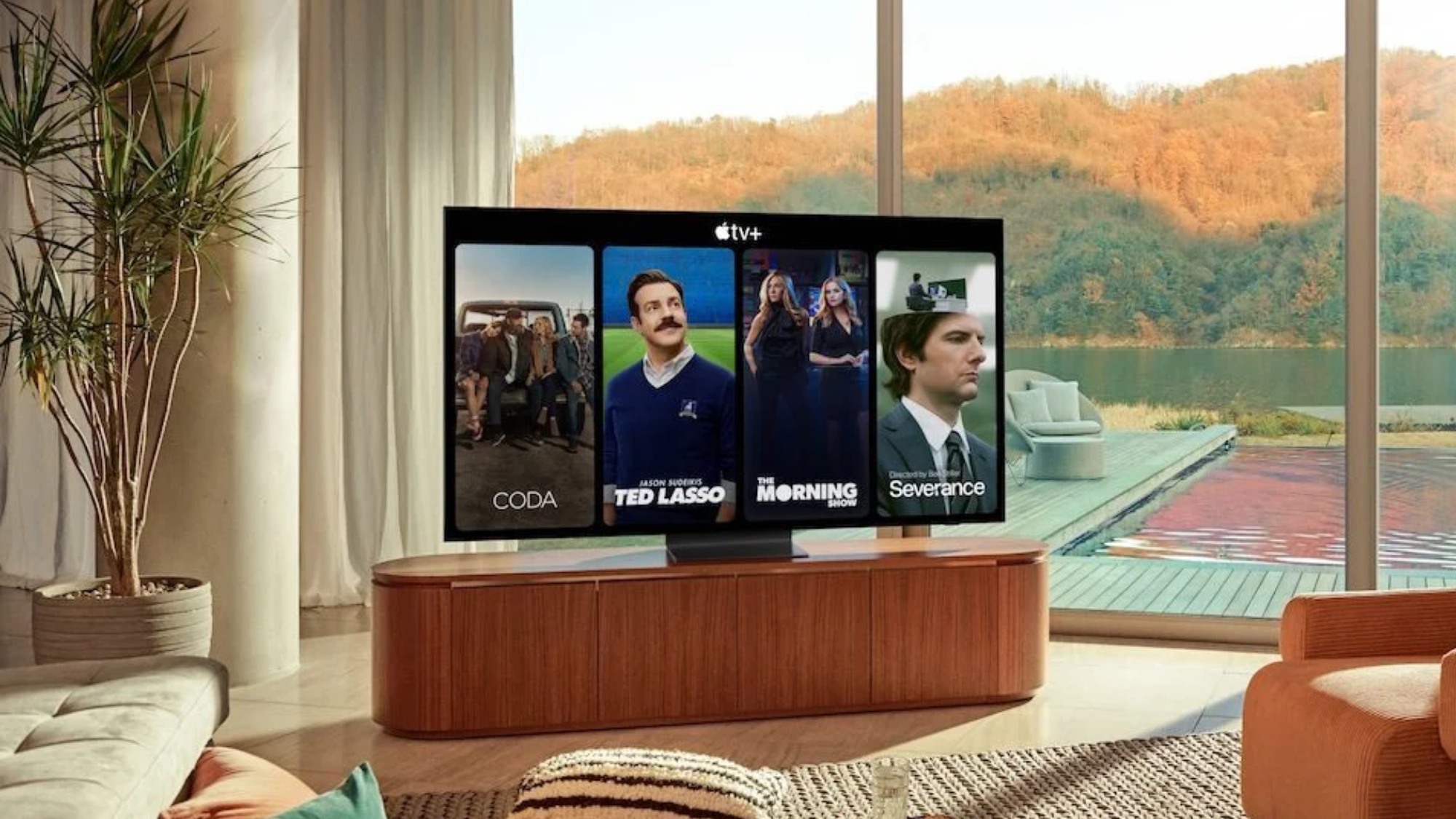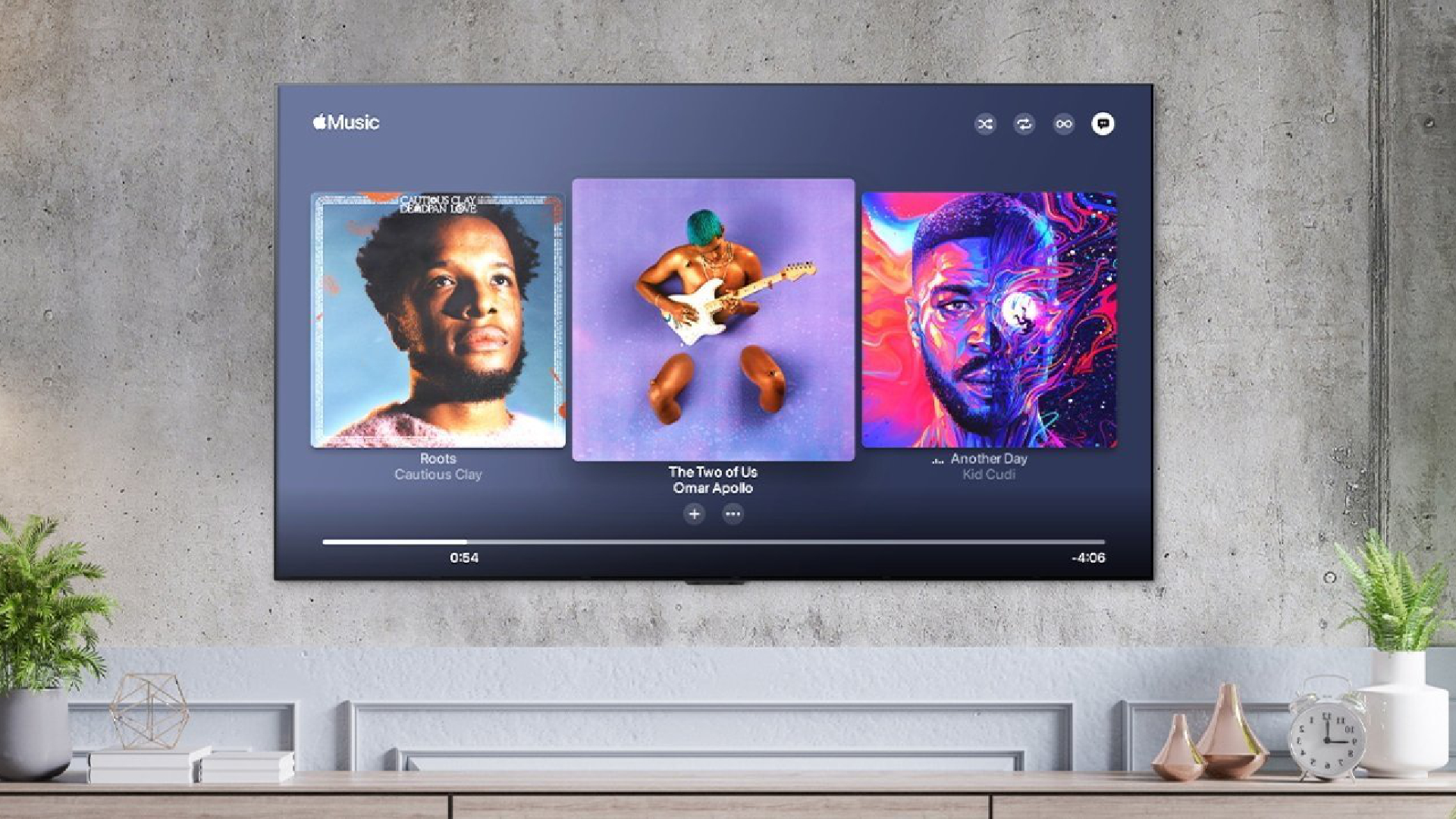
On the heels of releasing a brand new M4 MacBook Pro, Apple might be looking into the potential of launching its own branded smart TV. If that rumor's accurate, it could very well shake up the foundation of the TV market.
The rumor, which comes via Mark Gurman of Bloomberg fame, does note that an Apple smart TV is still very much in the conceptual stages, meaning it's an idea being floated around within the company's headquarters. The accuracy of the claims are unknowable, but it's certainly not the first time Apple's looked into making its own smart TVs.
Both in the 2000s and in the early 2010s, an Apple-branded TV concept was heavily championed by none other than Steve Jobs himself. It would obviously fall by the wayside as the company's Apple TV 4K streaming device took the world by storm — and still remains one of the best streaming devices in the market.
An Apple TV does kind of make sense for the brand if you really think about it. Apple's largely in the business of selling you screens upon screens in the form of iPhones, MacBooks, iPads, and iMacs. But I'm here to push back against any early hype, because all I see in the Apple smart TV concept is a disaster waiting in the wings.
A lackluster interface ruled by Apple Intelligence
Smart TVs these days have one major thing in common: AI chips with plenty of their own pros and cons across everything from upscaling to audio enhancements. I've already written several guides on which TV settings to change where necessary; plenty of them deal with these AI features.
That's because most of these settings tend to mess with the picture quality and performance, often ruining the viewing experience. There's no doubt Apple would take an opportunity like designing of a new smart TV to promote Apple Intelligence with its own set of AI enhancements, which will probably amount to little more than is necessary.
And while AI would be a hard pill to swallow for me in regard to an Apple smart TV, I think most dire of all for the proposed product would be tvOS serving as its main interface. While tvOS does have the benefit of being largely ad-free —minus of course Apple-branded adverts — it's not exactly the most streamlined of interfaces out there.
Even in the Google TV vs Roku bout featuring two of the very best TV interfaces right now, there's still a lot to consider in terms of compatible apps and free content — which, if you were wondering, Google TV dominates with. As for Apple's tvOS, when it comes to free channels and content, you're left to your own devices, i.e. free apps like Tubi or Pluto TV.
Then there's the question of gaming. Would Apple be able to meet the needs of gamers in a robust design that's not too expensive? Because for all my distaste in the interface, it could be a ripe as leading Apple's smart TV into becoming one of the best gaming TVs now that Apple is beginning to take the pastime more seriously.
Over-inflated pricing in a budget OLED era

The biggest issue I have with a potential Apple smart TV is the inevitably high asking price the company would slap on its new offering. Apple launched its Vision Pro headset earlier this year to an astronomical $3,499, locking out many would-be buyers and even those ever-so-slightly interested in the technology. There's no doubt it will favor a similarly high premium for a TV, whether OLED or not.
But if Apple were to launch an OLED TV, it would prove even more devastating. The best OLED TVs come as some of the most sought-after displays in the market with, as you might guess, some of the highest prices primarily because they offer the best picture performance.
Over the past few years, however, OLED TVs are starting to get cheaper ever so slightly. You can see it in the launch of cheaper models from lesser-known brands, like the $700 Sansui OLED TV that's got everyone abuzz. LG and Samsung also have two value-oriented OLED series in the LG B4 OLED and Samsung S85D.
Inviting an Apple OLED TV into the market could drive the price up on these other OLED TVs given Apple's sheer dominance in the tech industry. It may even make other brands that have yet to enter the OLED space, like Amazon and Roku, think twice about trying. Both of those companies launched their first Mini-LED TVs this year.
There's already more than enough competition in the OLED TV space as it is, with Panasonic returning after a lengthy hiatus to throw fuel into the fire with not one but two OLEDs. How an Apple-led design would be met to the masses is hard to say, but interest would be there, especially if it used the M4 MacBook Pro's nano-texture display.
But who's to say? Maybe Apple sticks with its Apple TV 4K set-top box for a long while and skips the TV boat entirely. It all depends on how well its smart home control does, according to Gurman, and that too will have some hefty competition in the form of Amazon's new Echo Show 21.
More from Tom's Guide
Sign up to get the BEST of Tom's Guide direct to your inbox.
Get instant access to breaking news, the hottest reviews, great deals and helpful tips.

Ryan Epps is a Staff Writer under the TV/AV section at Tom's Guide focusing on TVs and projectors. When not researching PHOLEDs and writing about the next major innovation in the projector space, he's consuming random anime from the 90's, playing Dark Souls 3 again, or reading yet another Haruki Murakami novel.
